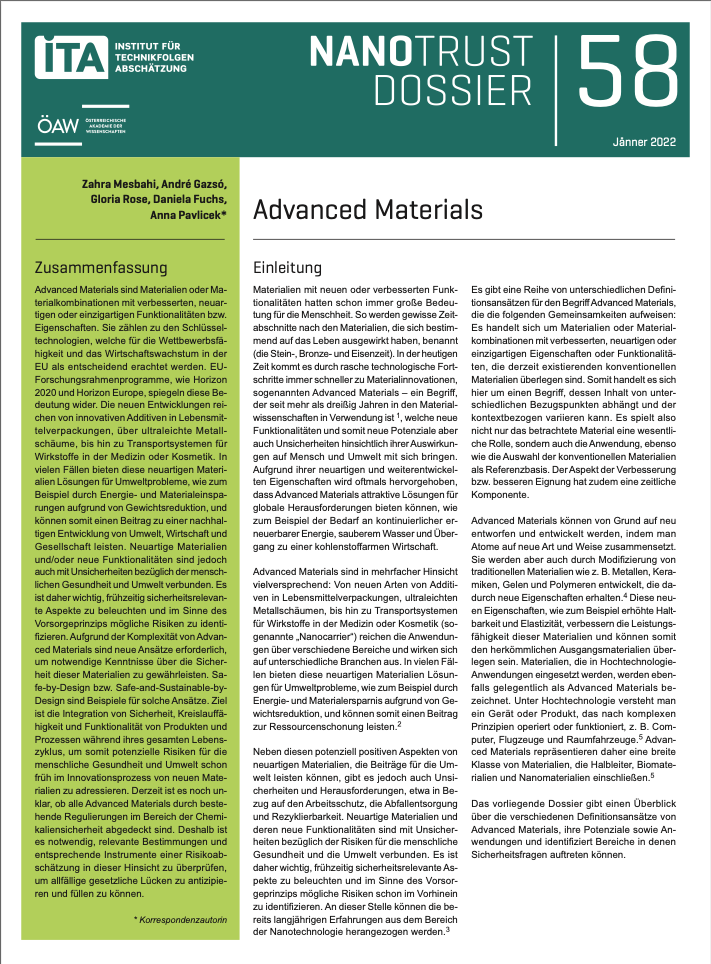Sabine Greßler,
Michael Nentwich
doi:
10.1553/ita-nt-026en
Abstract:
Nanotechnology products, processes and applications have the potential to make important contributions to environmental and climate protection by helping save raw materials, energy and water as well as by reducing greenhouse gases and problematic wastes. Nanomaterials, for example, can increase the durability of materials; dirt- and water-repellant coatings are designed to help reduce cleaning efforts; novel insulating materials can improve the energy efficiency of buildings; adding nanoparticles to reduce the weight of materials can help save energy during transport. Great hopes are being placed on nano-technologically optimized products and processes that are currently under development in the energy production and storage sectors.
Emphasis is often placed on the sustainable potential of nanotechnology, but this in fact represents a poorly documented expectation. Determining a product’s actual effect on the environment – both positive and negative – requires considering the entire life cycle from the production of the base materials to disposal at the end of its useful life. Only few life cycle analyses have been conducted, but some show clearly reduced environmental impacts or energy and resource savings for certain products that use nanomaterials or nanotechnology processes. Nonetheless, not every “nano-product” is a priori environmentally friendly or sustainable, and the production of nanomaterials often requires large amounts of energy, water and environmentally problematic chemicals.
nanotechnology-products nanotechnology-processes nanotechnology-applications environment sustainability nanotrust
Published Online:
2012/03/22 10:58:42
Document Date:
2012/03/20 10:58:00
Object Identifier:
0xc1aa5576 0x002abd26
Rights:All rights reserved.For questions regarding copyright and copies please contact us by email.Das NanoTrust-Team bietet an dieser Stelle in loser Folge sog.
Dossiers an,
die in leicht-fasslicher, aber wissenschaftlich fundierter Weise auf ca.
drei bis sechs Seiten den aktuellen Wissensstand zu den aktuellen Themen der
aufkommmenden Nanodebatte zusammenfassen.



 Home
Home Print
Print
 References
References
 Share
Share
